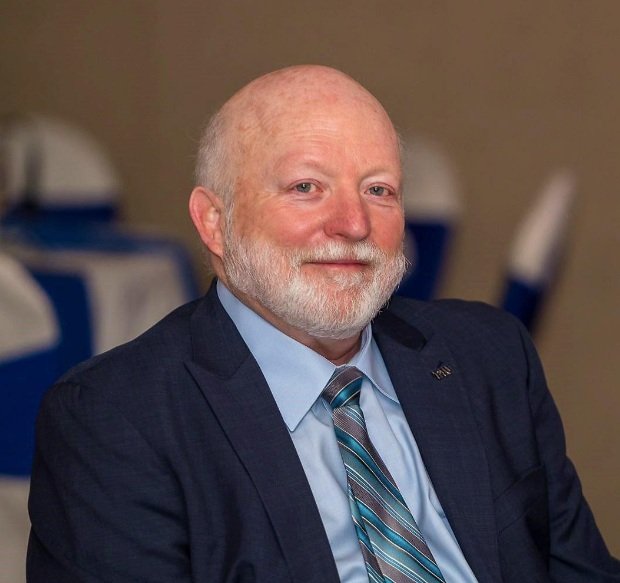Jorge Duany
Cuban Research Institute
Florida International University
Interviewed by Evelyn Martinez Aguilera, LALS MA’23
Jorge Duany, Ph.D., is Director of the Cuban Research Institute and Professor of Anthropology in the Department of Global & Sociocultural Studies at Florida International University.
Born in Cuba and raised in Panama and Puerto Rico, Dr. Duany previously served as Acting Dean of the College of Social Sciences and Professor of Anthropology at the University of Puerto Rico, Río Piedras (UPR). He also served as Chair of the Department of Sociology and Anthropology and Director of the journal Revista de Ciencias Sociales at UPR. He has held visiting research and teaching appointments at several U.S. universities, including Harvard, Connecticut, Wisconsin, Florida, Michigan, Pennsylvania, and the City University of New York. He earned his Ph.D. in Latin American Studies, specializing in anthropology, at the University of California, Berkeley. He also holds an M.A. in Social Sciences from the University of Chicago and a B.A. in Psychology from Columbia University.
Dr. Duany has published extensively on migration, ethnicity, race, nationalism, and transnationalism in Cuba, the Caribbean, and the United States. He has also written about Cuban cultural identity on the island and in the diaspora, especially as expressed in literature, music, art, and religion. He is currently a member of the editorial boards of the academic journals Latino Studies and CENTRO: Journal of the Center for Puerto Rican Studies, and previously served on the editorial boards of Caribbean Studies, Cuban Studies, Latin American and Caribbean Ethnic Studies, and New West Indian Guide. Dr. Duany is the author, coauthor, editor, or coeditor of twenty-two books, including the following:
Cuba and Puerto Rico: Transdisciplinary Approaches to History, Literature, and Culture (2023)
Obra selecta (2021)
Picturing Cuba: Art, Culture, and Identity on the Island and in the Diaspora (2019)
Un pueblo disperso: Dimensiones sociales y culturales de la diáspora cubana (2014)
Blurred Borders: Transnational Migration between the Hispanic Caribbean and the United States (2011)
La nación en vaivén: Identidad, migración y cultura popular en Puerto Rico (2010)
How the United States Racializes Latinos: White Hegemony and Its Consequences (2009)
The Puerto Rican Nation on the Move: Identities on the Island and in the United States (2002)
Cubans in Puerto Rico: Ethnic Economy and Cultural Identity (1997)
What drew you towards your field and work?
I was always drawn to the social sciences, initially to psychology and eventually to anthropology. And then I discovered the interdisciplinary field of Latin American studies, where I could combine my interests in the Caribbean region with other fields such as history and literature. Since graduate school, I’ve been exploring various topics—such as Caribbean migration, cultural identity, and transnationalism—from various intellectual and methodological perspectives, especially those that bridge the social sciences and the humanities.
What challenge(s) did you encounter in your academic teaching career, and how have you addressed it?
The greatest challenge, upon earning my Ph.D., was to return to Puerto Rico, where I grew up, and secure a regular teaching position in the social sciences. I initially found one in a small private college teaching mostly psychology and a few courses in anthropology. Later I earned a tenured position in anthropology at the main campus of the island’s public university. Some years ago, I decided to move to Miami to head the Cuban Research Institute at Florida International University. Part of the reason for my relocation was the decreasing level of funding for higher education in Puerto Rico, together with a very exciting opportunity for professional development in Florida. A challenge in the past decade has been to maintain my research and teaching interests in the field of Puerto Rican studies as well as in Cuban studies.
What are the issues closer to you?
Since I was very young, I was troubled by the constant question, “Where are you from?” I usually answered, “I was born in Cuba, but I grew up in Puerto Rico.” Yet that answer never settled which country I felt most attached to. I now prefer to say that “I grew up in Puerto Rico, but I was born in Cuba.” Half in jest, I often declare that I’m a “Cuba-Rican,” rather than Cuban American because I had never lived for an extended period in the United States until 2012. In any case, I’m aware that the question of cultural identity has fascinated me and perhaps obsessed me for a long time. As a result, much of my academic work has centered on the socioeconomic and cultural adaptation of immigrants from the Hispanic Caribbean, namely, Cuba, Puerto Rico, and the Dominican Republic. I hope that my research and writing resonate with the experiences of others who blur borders in their daily lives.

